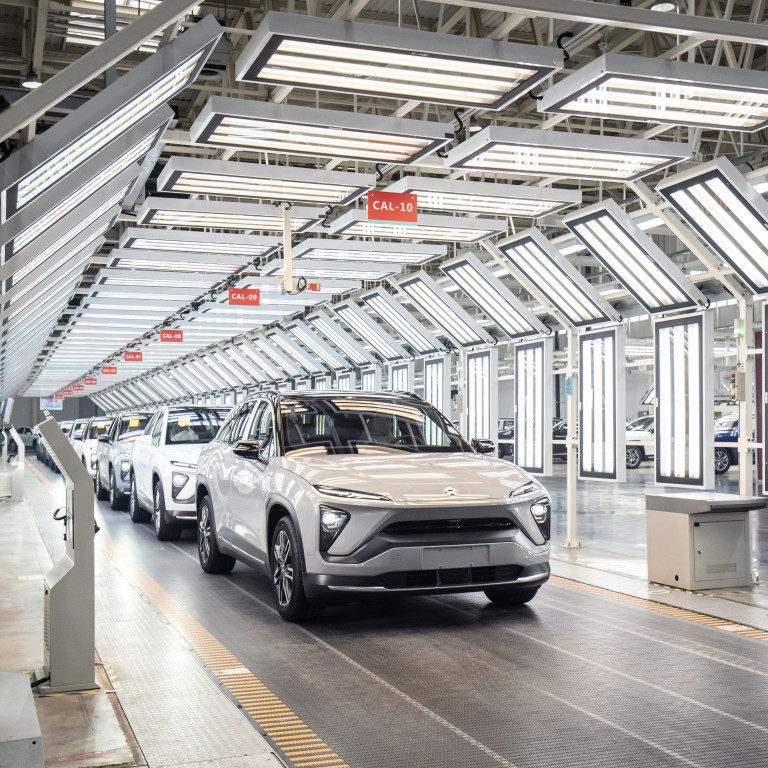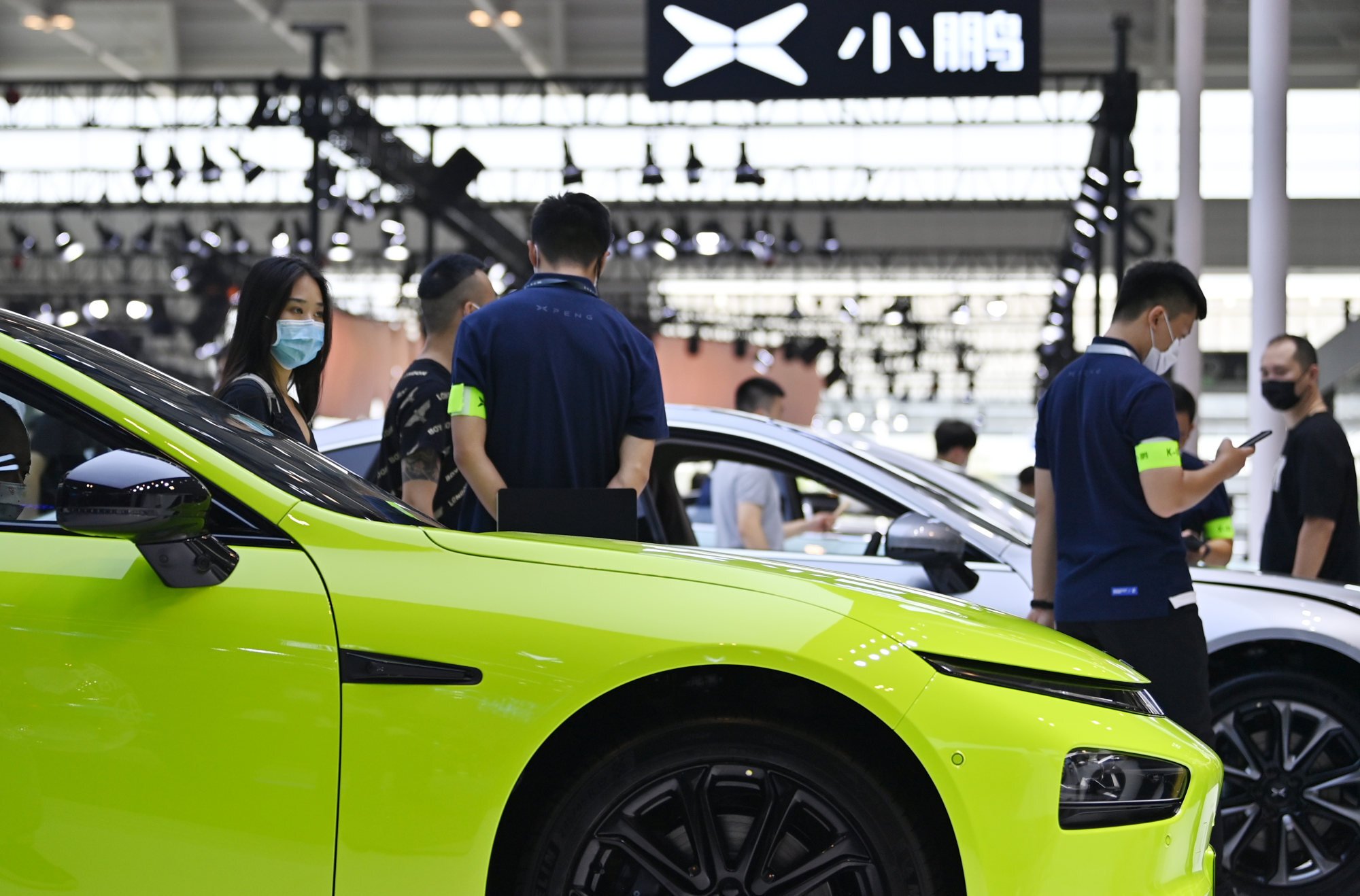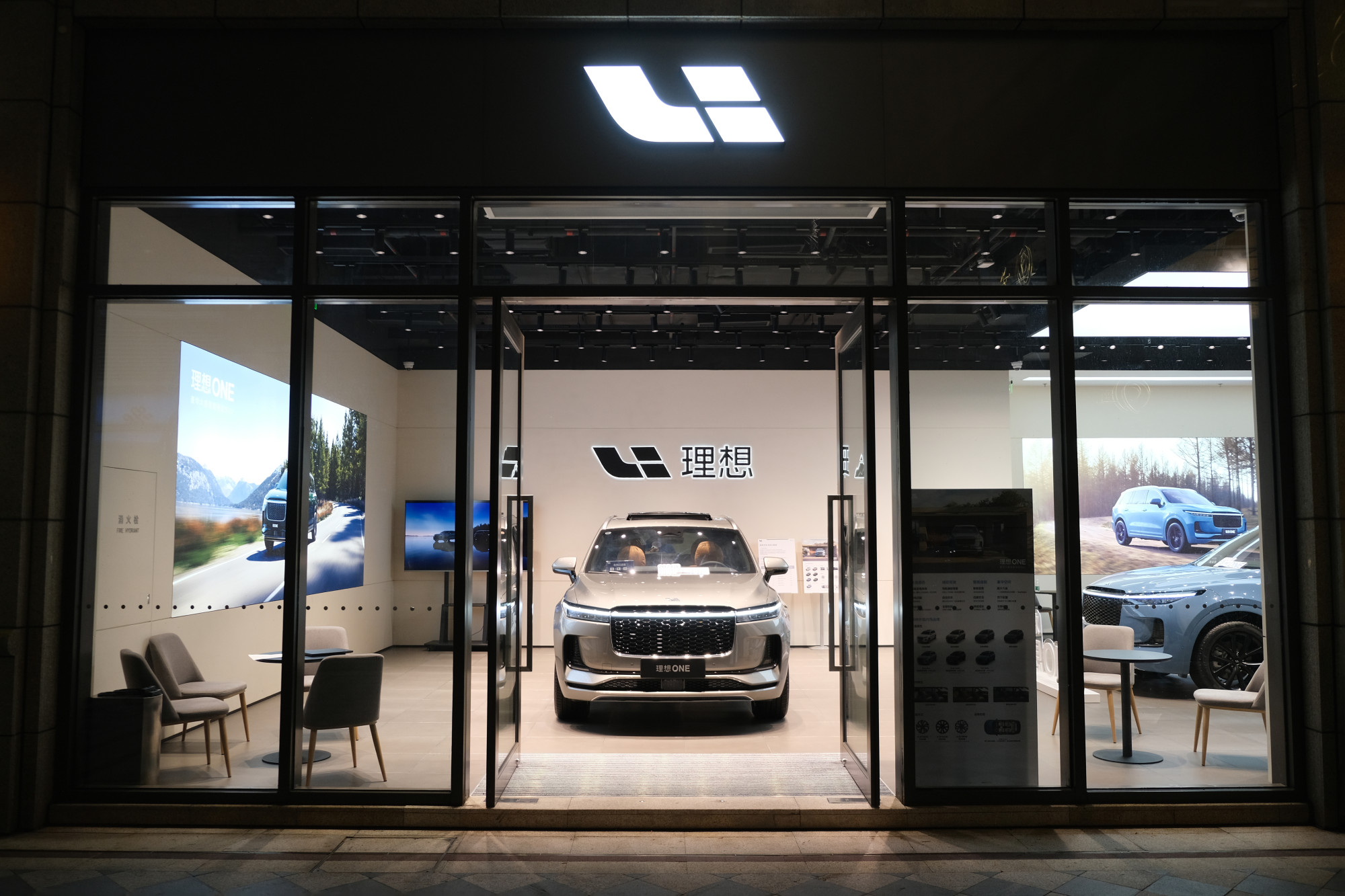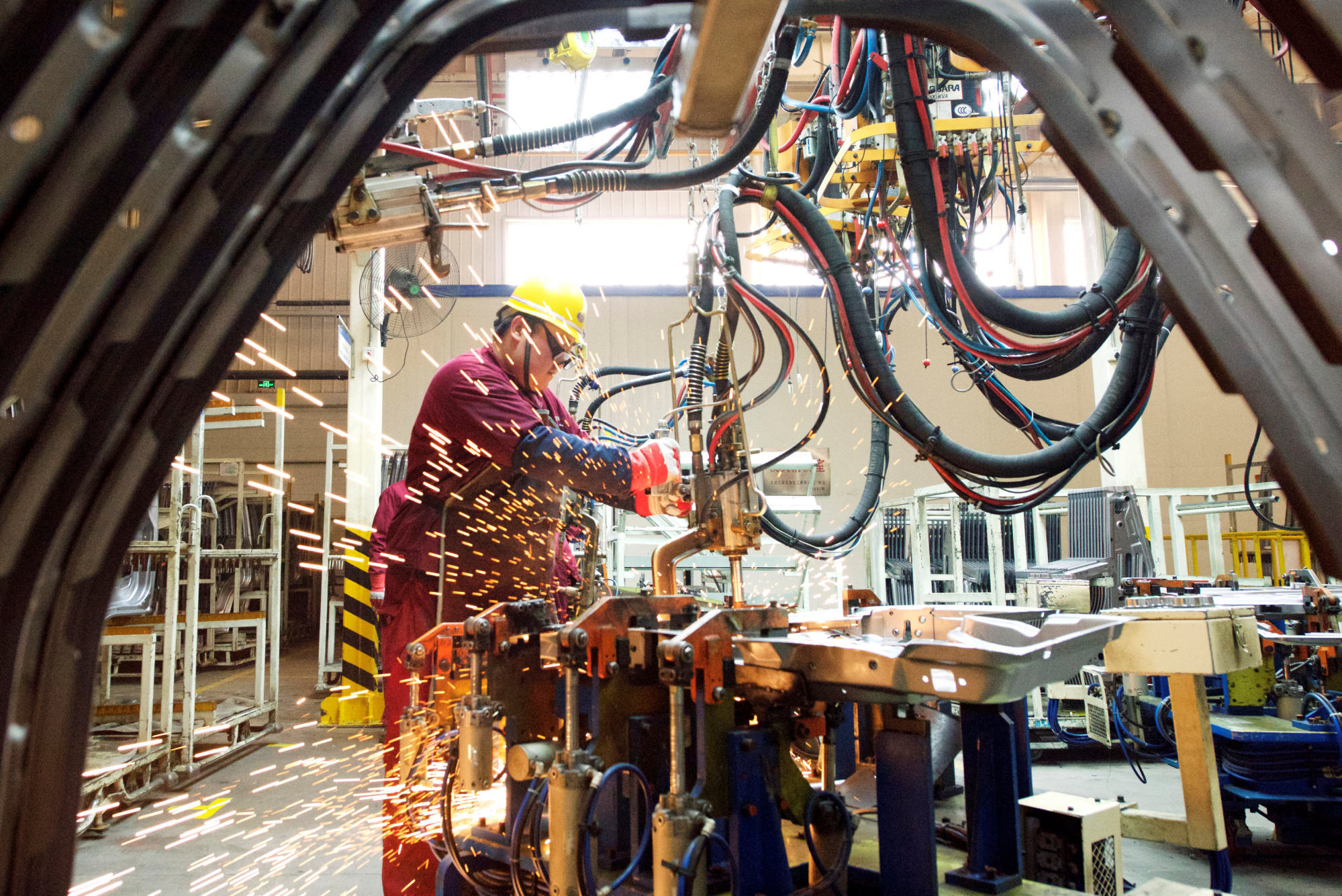
Chinese EV darlings Nio, Xpeng and Li Auto see their stocks suffer as Covid woes put brakes on production and demand
- Shares of three leading Chinese electric vehicle start-ups have lost between 17 and 50 per cent of their value in Hong Kong this year
- Passenger car sales fell 11 per cent in March, compared to a year ago, and April could see sales contract by 32 per cent, industry group says
Chinese car stocks may have captured investors’ hearts in 2021, but they have only inflicted pain – to the tune of almost US$400 billion in losses – this year, as extended lockdowns damage supply chains and imperil the demand outlook.
Across the car industry, related stocks mirrored the slump. An MSCI index tracking Chinese companies related to energy storage and autonomous vehicles has fallen 39 per cent this year, after soaring 35 per cent last year, according to Bloomberg data. The benchmark includes firms like Contemporary Amperex Technology (CATL), Nio, Xpeng and Jiangxi Ganfeng Lithium.
Chinese carmakers also have to contend with weaker demand as lockdowns restrict consumption. Car sales fell 11 per cent in March, compared to a year ago, according to the China Association of Automobile Manufacturers.

China’s imposed lockdowns in recent months crippled supply chains, particularly in major hubs for car manufacturing like Shanghai, Guangdong and Jilin. These areas accounted for almost one-third of China’s production volume last year, according to Jefferies research, which expected April to track a 40 per cent decline in production.

“Besides near term first order impacts on production and retail sales in April or May, we worry about the second order impact on underlying auto demand in the second quarter and second year-half as a result of the slower economy and consumption momentum,” said JPMorgan analysts including Nick Lai in a note published last Thursday.
“The worst may be over for supply chain disruption in Shanghai, but recovery could be slow,” said Shi Ji, analyst at CMB International in an April note, given a “double hit in supply and demand”.

Persistent cost inflation in batteries and broader commodities is also weighing down profit margins, which could lead to more misses in carmakers’ earnings for the first quarter, said Lai of JPMorgan.
China needs more EVs at a faster rate to meet carbon neutrality goal
Share prices could see some recovery in late May as production lines resume and lockdowns end, but a rebound driven by fundamentals can only happen when demand ticks up, said Lai.
An indicator of improved demand would be when car sales return to growth, which Lai expects to happen only after the second quarter.

